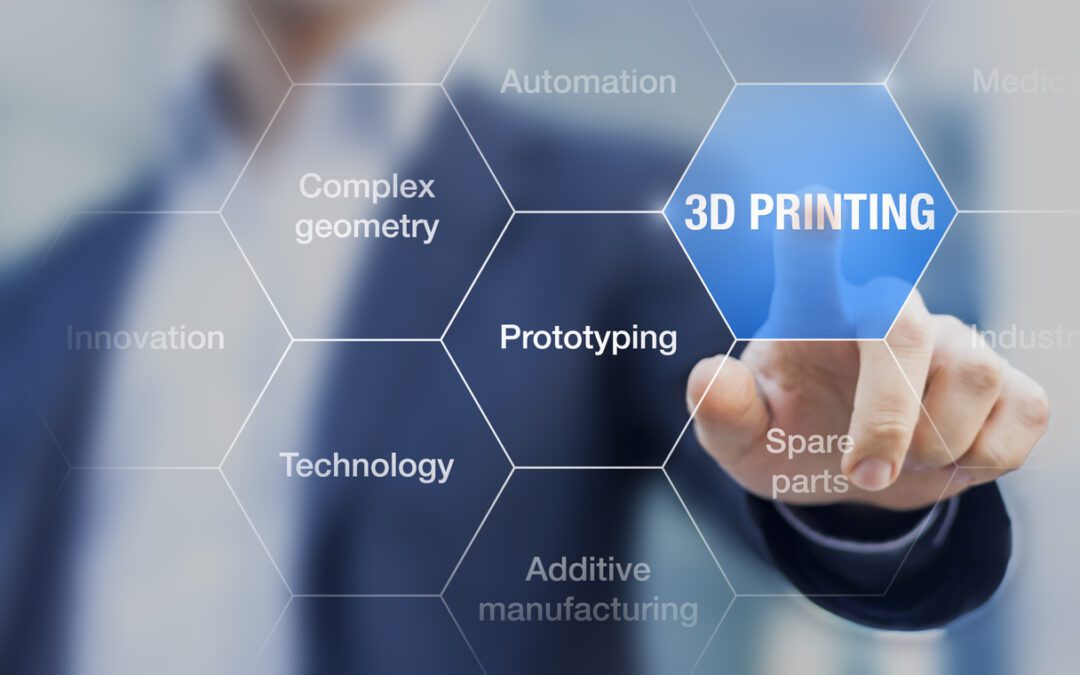5 Key Insights from Nota3D
3D printing has evolved from a prototyping novelty into a core part of modern manufacturing. But selecting the right 3D printer can be daunting. With so many technologies, materials, resolutions, and build volumes available, making the wrong choice can cost time, money, and productivity.
At Nota3D, we specialize in helping manufacturers choose the best 3D printer in manufacturing. In this guide, we break down key considerations for selecting a manufacturing-grade 3D printer — and show how Nota3D helps turn these factors into confident, actionable decisions.
Key Factors to Consider When Choosing a 3D Printer
| Factor | What to look for | Why it matters |
| Printing Technology | FDM/FFF, SLA/DLP, SLS, MJF, metal printing | Determines surface finish, strength, speed, material options, and post-processing requirements. |
| Build Volume / Print Size | Maximum part dimensions and multi-part capacity | Ensures parts fit the printer and production efficiency is maximized. |
| Resolution, Precision & Tolerances | Layer thickness, XY resolution, repeatability | Critical for functional parts requiring tight tolerances. |
| Material Compatibility | Thermoplastics, resins, composites, metals | Material choice impacts strength, durability, chemical resistance, and thermal properties. |
| Speed / Throughput | Print time, number of parts per unit time, setup/prep | Affects manufacturing efficiency, especially for small batch production. |
| Reliability and Support / Maintenance | Brand reputation, hardware durability, parts availability | Reduces downtime and ensures consistent operation. |
| Operating and Ownership Costs | Materials, energy, maintenance, labor, post-processing | Determines the true cost per part and return on investment. |
| Post-Processing Requirements | Supports, cleaning, curing, finishing | Post-processing adds to lead times and labor costs. |
| Scalability and Flexibility | Upgradeable, modular, multi-material capabilities | Allows your system to grow with evolving manufacturing needs. |
| Integration with Workflow & Software | CAD/CAM compatibility, slicing software, remote monitoring | Ensures smooth integration with your existing production workflow. |
Before diving into specific technologies or models, it’s essential to evaluate the core factors that determine whether a printer will meet your manufacturing needs:
1. Printing Technology & Material Compatibility
The choice of 3D printing technology — whether FDM, SLA, SLS, MJP, DLP, or metal additive — directly impacts what materials you can use, surface finish, strength, and post-processing requirements.
Nota3D Advantage:
- Offers a diverse range of 3D printers, including plastics, metal, dental, and casting solutions.
- Provides expert guidance to help manufacturers choose the best 3D printer in manufacturing for their part requirements and materials.
2. Build Volume, Resolution & Precision
Size and precision matter. Large build volumes let you produce bigger parts or multiple smaller parts at once, while high resolution ensures accurate, functional components.
Nota3D Advantage:
- Demonstrates real-world part examples so you can evaluate performance before investing.
- Provides consulting to align your design needs with the most suitable printer, balancing size, resolution, and cost.
3. Speed, Throughput & Post-Processing
Effective throughput is crucial for manufacturing. Consider not only printing speed but also post-processing steps like cleaning, curing, and support removal.
Nota3D Advantage:
- Offers operational guidance on optimization.
- Advises on trade-offs between speed, material, and post-processing to meet production targets efficiently.
4. Reliability, Support & Total Cost of Ownership
Downtime can disrupt production schedules. You need a vendor who offers reliable hardware, software support, and maintenance. The total cost of ownership (TCO) includes not only the printer’s price but also materials, energy, labor, and maintenance.
Nota3D Advantage:
- Provides repair and maintenance services to reduce downtime.
- Supplies software and inspection tools to maintain quality and reduce rework.
- Helps forecast TCO over 3–5 years for better budgeting and ROI.
5. Scalability, Flexibility & Integration
As your manufacturing needs grow, your 3D printing system should scale with you. Look for modular printers, software integration, and compatibility with CAD/CAM workflows.
Nota3D Advantage:
- Offers software that ties scanning, design, inspection, and manufacturing together.
- Provides solutions for scaling from small parts to large productions, or from plastics to metals, within the same vendor ecosystem.
- Leasing and upgrade options allow businesses to adapt to evolving production needs.
How Nota3D Helps You Choose the Best 3D Printer in Manufacturing
Selecting a 3D printer isn’t just about specs — it’s about aligning technology, materials, throughput, and costs with your production goals. Nota3D provides:
- Expert guidance on printer technology, materials, and post-processing workflows.
- Operational support from maintenance to software integration.
- Ecosystem continuity, offering machines, software, and materials that work seamlessly together.
- Scalable solutions to grow with your business.
- Lower risk through consultations, demos, and ongoing support.
With Nota3D, the principles of how to choose the best 3D printer in manufacturing aren’t just theoretical — they become actionable and future-proof.
Get Started with Nota3D
Ready to choose the best 3D printer in manufacturing for your production needs? Visit Nota3D.com to explore our printer portfolio, software, and expert consulting services. Our team will help you select, implement, and optimize the 3D printing technology that fits your workflow — today and as your business grows.
